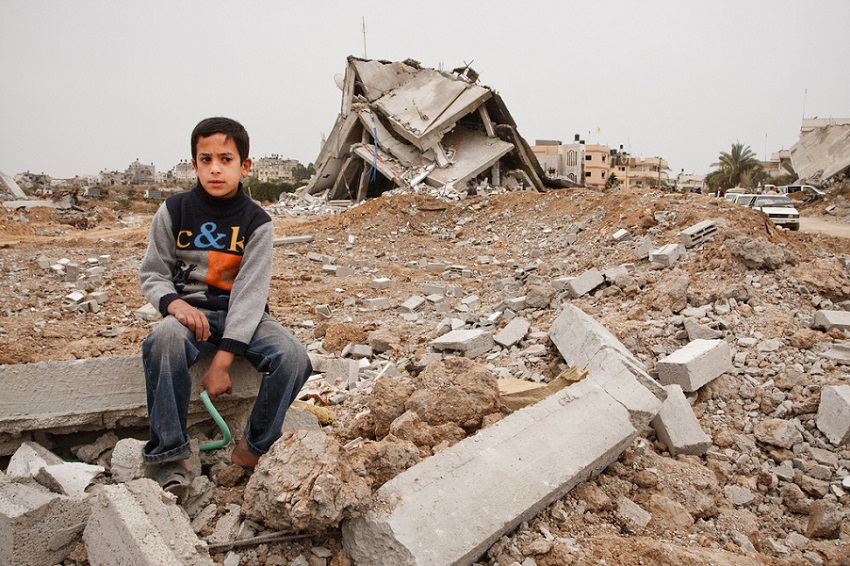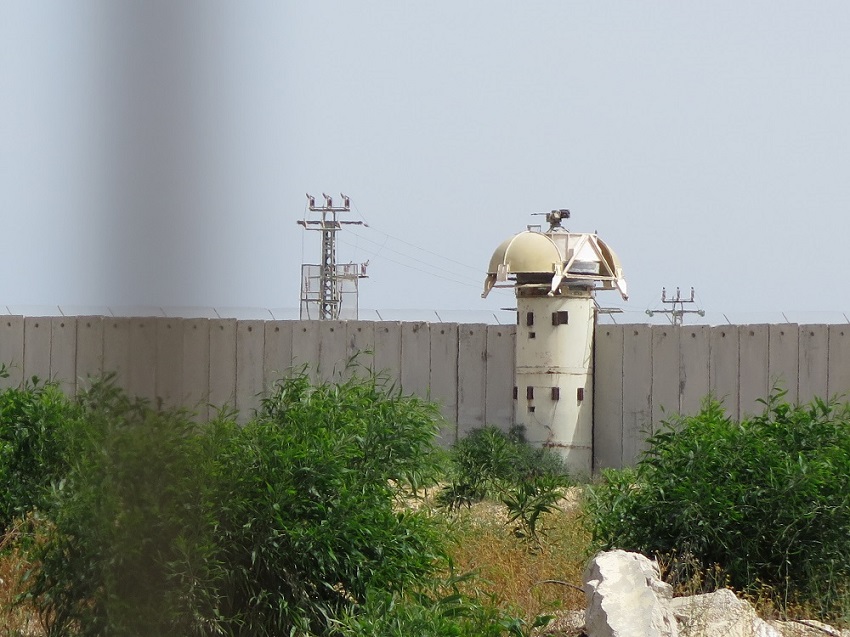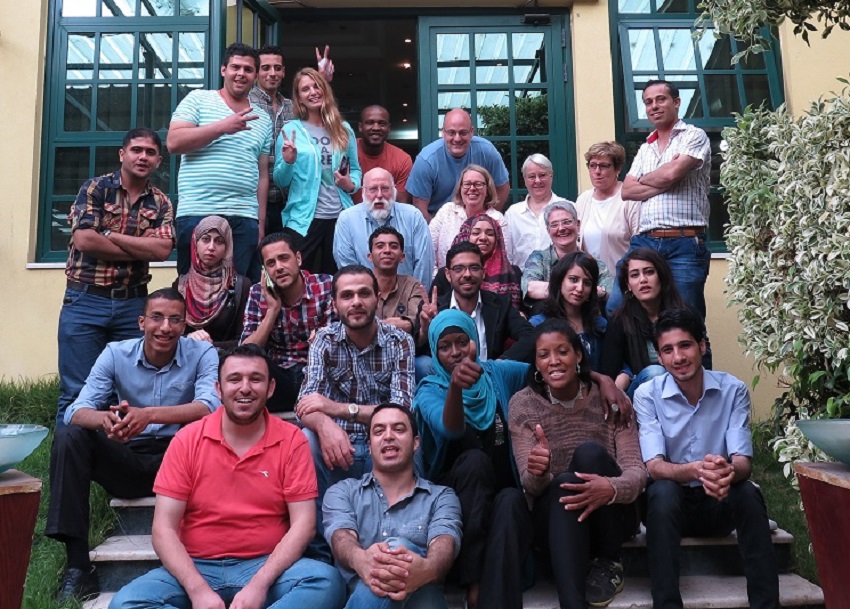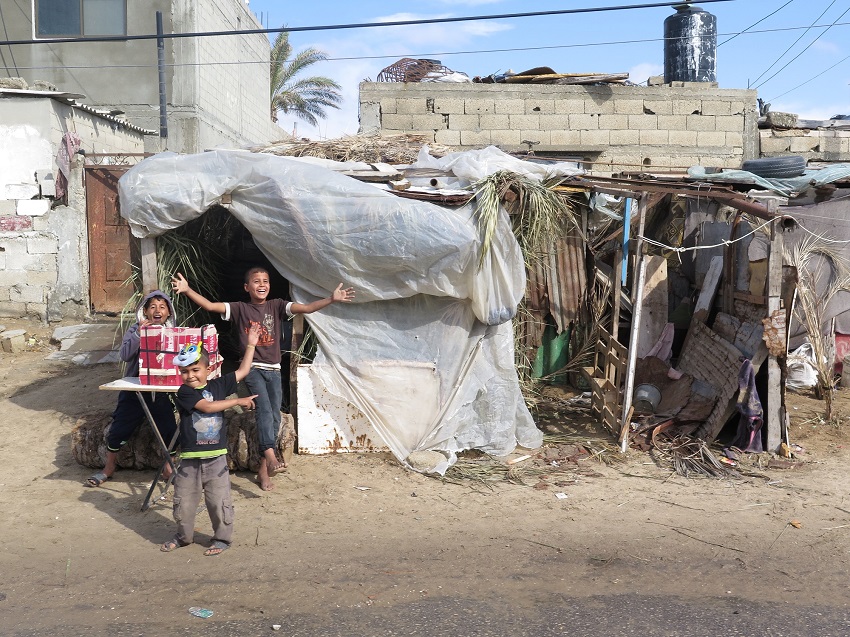
“A transformation of contemporary cultures starts with desperate and faithful citizens on the edges, ready to fly to the center.” Rev. Billy Talen
I visited Gaza in May of 2014. Witnessing the dire situation first-hand and listening to my new Palestinian friends tell stories of life in a war zone helped me come to a critical understanding about the transformative work to which I and others are called: Love calls us to stand in the way of injustice.
During my visit, I walked with other folks from AFSC through the long check point past the separation wall with remote controlled machine guns perched on top. I learned that if people go into the “no man’s zone,” near the wall, they will be shot without hesitation. I learned that farmers can only visit their crops during certain hours; if they are caught after dusk, they will be shot.

Soon after we arrived we met with nearly twenty young people, part of AFSC’s Youth Together for Change program and they told us stories. They talked about how they have electricity for only a few hours a day, how fresh water is scarce. A student talked about getting up at 4 a.m. when the electricity was working to iron her clothes for school, to take a taxi early enough so she could get to class. She said that she did all that to resist the blockade, the occupation – to still live despite the horrible obstructions to life.
One woman, Ayah, talked about the last war, Cast Lead (2008-2009), and how she would hold her brother’s ears during the bombing and tell him the bombing had stopped. She talked about how she dreamed one day of driving from Gaza City to Haifa, the city from which her family was expelled. She said, “We have been living in a kingdom of illusions for 20 years,” referring to the brutality of the occupation, a reality that gets hidden from Israelis.
On the last night we had dinner together at a restaurant near the ocean. We laughed, told stories and jokes, and enjoyed one another’s company. That evening felt to me to be closer to communion than any meal before or since: to get to be together in the midst of deep oppression, to have some moments of peace. The next day we journeyed back through the checkpoint, through the long enclosed tunnel. Many of us cried – we didn’t know when or if we would see our new friends again.

Two months later the 2014 bombing of Gaza began. It was the first time I had known people who were being bombed. I would wake up every morning to look on social media to find out whether my friends were still alive. One of the young men we met on that trip was killed.
For 51 days I felt like I couldn’t take a breath and I became clear: my son’s life, the life of my family, my life is no more precious than the folks I met. I became clear that if I could stand in the way of the bombs, if that could help, I would do it. That experience continues to inspire my daily work: Love called me to find ways to stand in the way of injustice, to disrupt all that was harming lives precious to me.
When the bombing stopped, I could breathe again, but for many people in Gaza there is little relief, Ayah said in many ways Palestinians would rather have had the quick death of the bombs than the slow death of the blockade. At least when Israel bombs Gaza, the world pays attention. It took me a year to deal with the secondary trauma of being connected to those being bombed; imagine the depth of healing needed for those who are targeted?

The U.S. has recently called for U.S. citizens to evacuate Gaza. Though this action doesn’t necessarily indicate bombs will be falling soon, I can feel my body tense for the next attack.
In order to be ready for the next stage of struggle, it’s critical that I stay connected, that I not shut down my heart to the news. I will still act from the love of my friends and strive to find ways, whether speaking out or protesting or boycotting, to stand in the way of this injustice, as much as I can from afar.
Rachel Corrie, who was killed in 2003 while standing in the way of an Israeli Defense Force bulldozer that was demolishing a home in Gaza, inspires me. She said, “I … think it’s important for people in the United States in relative privilege to realize that people without privilege will be doing this work no matter what, because they are working for their lives. We can work with them, and they know that we work with them, or we can leave them to do this work themselves and curse us for our complicity in killing them.”
Related Content:
Working to end blockade in Gaza
BDS brings Jewish and Palestinian Americans together for justice